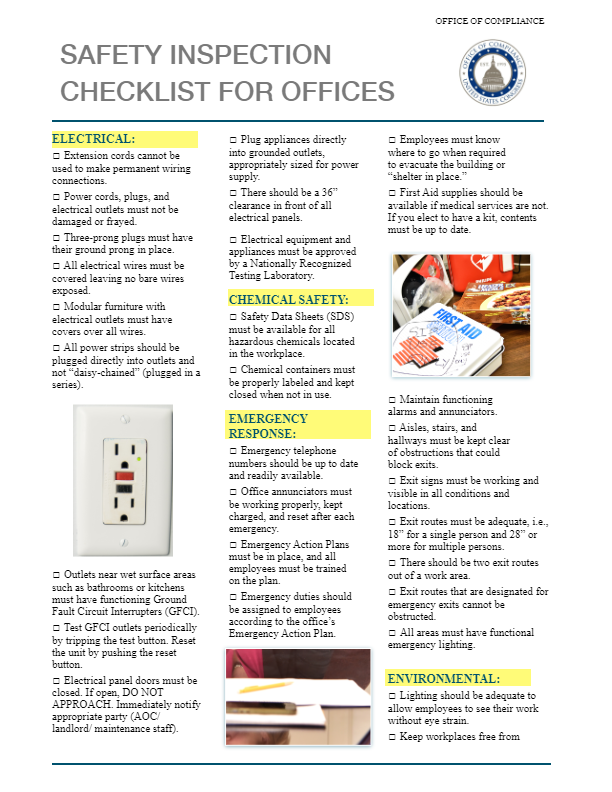ELECTRICAL:
- Extension cords cannot be used to make permanent wiring connections.
- Power cords, plugs, and electrical outlets must not be damaged or frayed.
- Three-prong plugs must have their ground prong in place.
- All electrical wires must be covered leaving no bare wires exposed.
- Modular furniture with electrical outlets must have covers over all wires.
- All power strips should be plugged directly into outlets and not “daisy-chained” (plugged in a series).
- Outlets near wet surface areas such as bathrooms or kitchens must have functioning Ground Fault Circuit Interrupters (GFCI).
- Test GFCI outlets periodically by tripping the test button. Reset the unit by pushing the reset button.
- Electrical panel doors must be closed. If open, DO NOT APPROACH. Immediately notify appropriate party (AOC/ landlord/ maintenance staff).
- Plug appliances directly into grounded outlets, appropriately sized for power supply.
- There should be a 36” clearance in front of all electrical panels.
- Electrical equipment and appliances must be approved by a Nationally Recognized Testing Laboratory.
CHEMICAL SAFETY:
- Safety Data Sheets (SDS) must be available for all hazardous chemicals located in the workplace.
- Chemical containers must be properly labeled and kept closed when not in use.
EMERGENCYRESPONSE:
- Emergency telephone numbers should be up to date and readily available.
- Office annunciators must be working properly, kept charged, and reset after each emergency.
- Emergency Action Plans must be in place, and all employees must be trained on the plan.
- Emergency duties should be assigned to employees according to the office’s Emergency Action Plan.
- Employees must know where to go when required to evacuate the building or “shelter in place.”
- First Aid supplies should be available if medical services are not. If you elect to have a kit, contents must be up to date.
Learn more and continue to read by downloading the following document(s).
